How Zero-Waste Chef Max La Manna Is Fighting the Climate Crisis With Food
Forget using every part of the buffalo — Max La Manna wants you to “utilize every part of the vegetable.”
Published March 9 2021, 4:36 p.m. ET
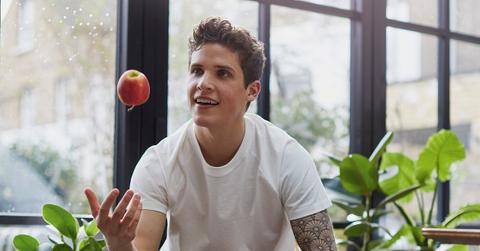
Forget using every part of the buffalo — Max La Manna wants you to “utilize every part of the vegetable.”
La Manna is a London-based chef (by way of the U.S.) known for avoiding two things that most chefs encounter daily: food waste and animal products. In just three years on Instagram, the environmental activist has racked up more than 542,000 followers by creatively avoiding food waste, promoting veganism (or as he likes to call it, eating more plants), and living a low-impact lifestyle, all while acknowledging the privilege that comes with doing so.
We recently caught up with La Manna to hear his best advice for lowering your environmental impact, why he thinks we can all make a difference, and to learn more about his cookbook, More Plants Less Waste.
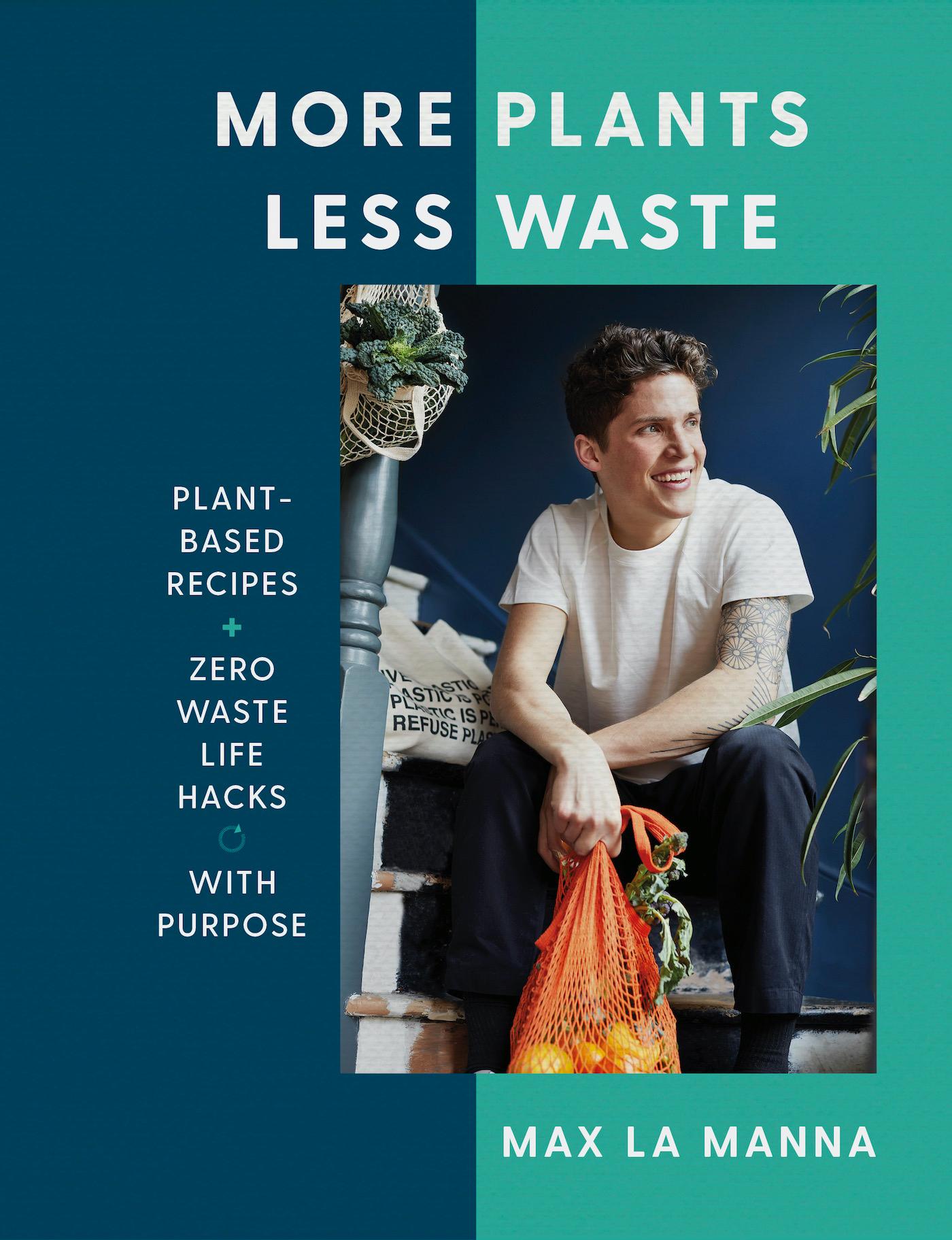
Not only does La Manna's cookbook contain delicious recipes, but it's also filled with practical tips for helping readers reduce waste in the kitchen. “It’s not your average plant-based cookbook,” La Manna tells Green Matters over the phone.
“It provides useful tips for you to utilize every part of the vegetable or every part of the fruit, whether that part of the ingredient is going into a certain dish you’re able to consume, or that piece of the vegetable or fruit is going into a house cleaner or detergent or body scrub. It covers everything, so nothing goes to waste,” he explains.
That philosophy of reducing food waste in the kitchen is scattered throughout More Plants Less Waste. The book provides helpful tips on plant parts you may be surprised to find out you should be eating (“[Use] the broccoli stalk, which is typically just chucked in the bin. There are so many rich nutrients and goodness in that part of that vegetable”). It also includes recipes to make your own ingredients from scratch, such as ketchup, mustard, mayonnaise, and pesto (made from the nutritious stems of herbs), as well as a recipe for plant-based butter made with aquafaba, aka the water in a can of chickpeas.
Not only can using up fresh ingredients in your kitchen yield fresher and more nutritious meals, but it can also help save food waste (for example, by making just the amount of mayo you need as opposed to buying a jar that could go sour) and even save money (raw ingredients are often cheaper than pre-packaged foods).
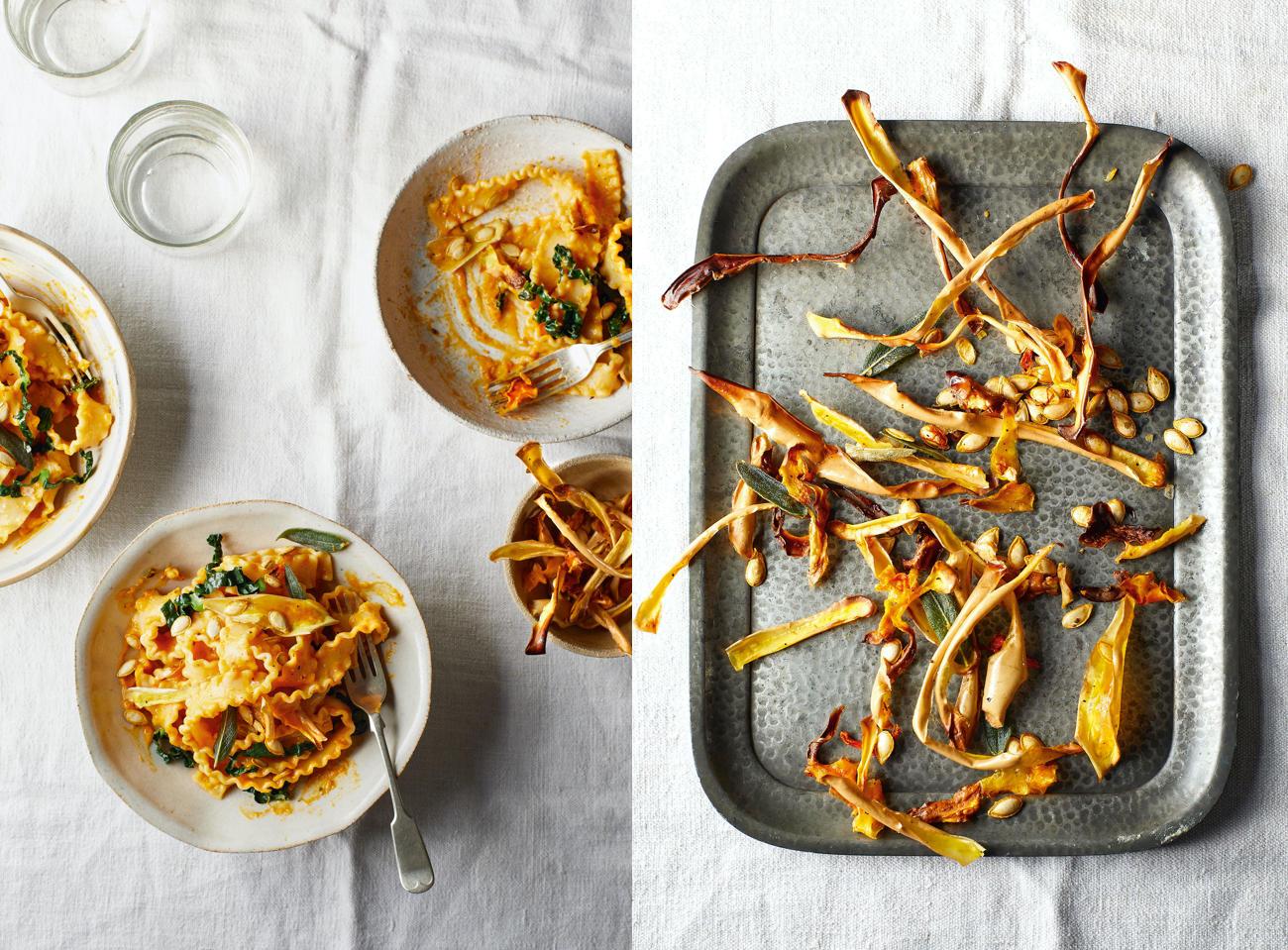
But foodies, fear not: More Plants Less Waste also has plenty of recipes for delicious meals. La Manna’s favorite recipe in the book is the Seed to Skin Butternut and Sage Pasta. “Most butternut squashes, the skins are thrown away,” La Manna explains. “So I use the skins, I toast them on the stove, and I make them crispy, and I use the seeds inside the butternut squash and toast them, and the butternut squash itself I use as a sauce, so I utilize every part of the vegetable into a delicious, tasty pasta.”
Another highlight in the book is La Manna’s guide to help you compost at home. “So that’s why my book ... is different than most cookbooks,” he says. “Because it also helps you live a life with less waste. And food is one of the most damaging industries in the world, so helping people utilize every part of the vegetable, but also help them recycle their food waste, is important.”
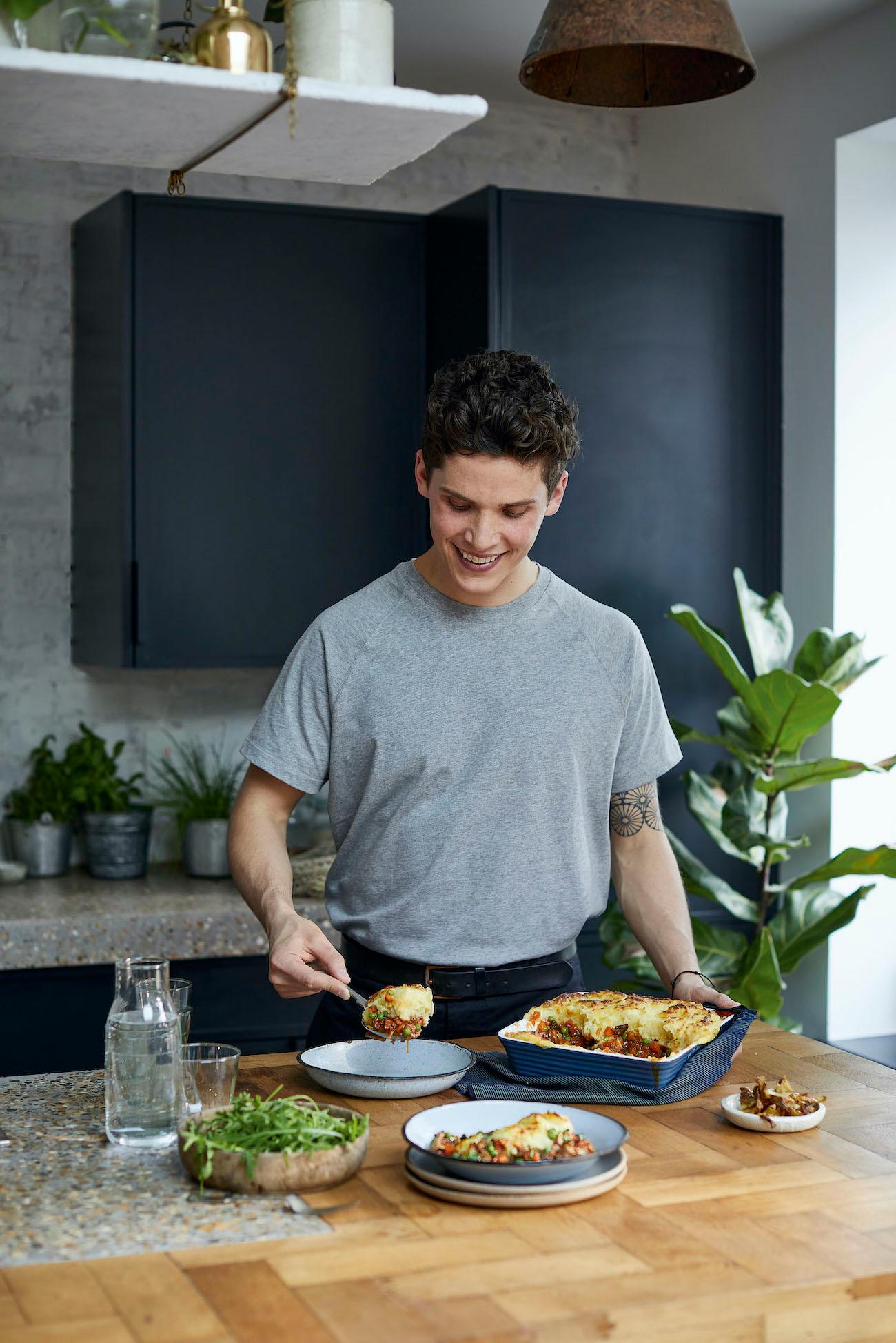
One reason people love “eating with Max” (as his Instagram handle used to read) on social media is his positive attitude. Keeping up with news surrounding the climate crisis can become disheartening, but La Manna always manages to remain hopeful (at least, he appears to on Instagram). So, I had to ask: If you had 30 seconds to explain to someone why they should consider eating more plants and producing less waste, what would you say? What words could help facilitate that shift in mindset, which needs to come before the shift in habits?
Here’s what he has to say:
“What they have right now in their home or on their person, on themselves, is all they need. They don’t need to look outside themselves, they don’t need to go out and buy a reusable bag, they don’t need to go out and get a KeepCup, they don’t need to buy more in order to live a life with less waste.”
La Manna added that he has four principles for becoming a more conscious consumer, which are a great reminder for the experienced environmentalist and a wonderful starting point for sharing with friends who don’t quite get it yet:
1. Less is always more. Buying thoughtfully. Do you really need it? Ask yourself, can I find this secondhand, or can this be produced locally?
2. Asking that question. Where does this go after I’m done using it?
3. Be content. Things don’t define who we are. And we have to be and should be happy with the things that we already have in our lives. If it doesn’t bring us happiness, then donate it or give it to those who may find value in it.
4. Start small. We live in a throwaway society and never really contemplate what happens after it leaves us. There is no ‘away.’ When we throw something away, it goes somewhere. So start small, make the adjustments in your life right now to consume less. And it may seem difficult, but if you start with one thing today, it’ll become more manageable over time.
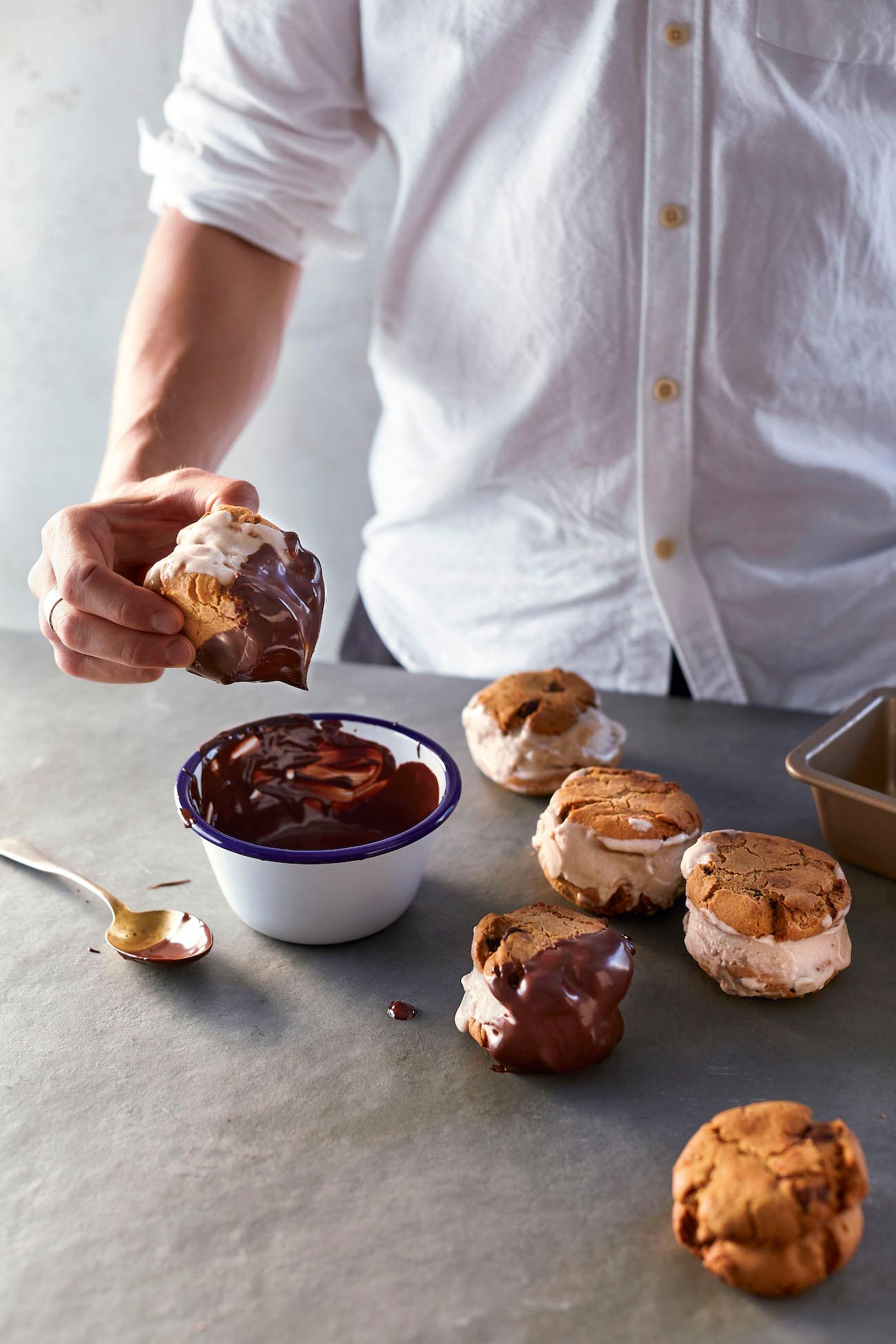
All that being said, La Manna recognizes he is able to live this way due to his privilege. “I’m a white male who has the time and the money to buy things that are sustainably sourced, or come in packaging that is more responsible and environmentally conscious,” he says. “This is a privileged space ... what we can do is speak up and make this accessible for everyone. That’s the challenge.”
And as La Manna's platform grows, he is using his voice to share his message with wider audiences and focus on tackling food waste on a systematic scale. For instance, he hosted a BBC Earth food series called Regeneration Earth, which aims to uncover the food waste issue in the U.K.
But still, it seems like he’ll never lose his passion for how much individuals can make a difference.
“People are really waking up that everything we do has an impact. I love the [mentality of], ‘I may be one person, but my one choice, the food that I choose to eat today, or the clothing that I choose to buy today, or the product that I choose to buy today will, in fact, impact someone somewhere around the world,’” La Manna says. “And it’s just like dropping a stone in a pond, it has that ripple effect. Everything we do affects everyone else. Whether we buy something or we say something, our actions have vibrations.”